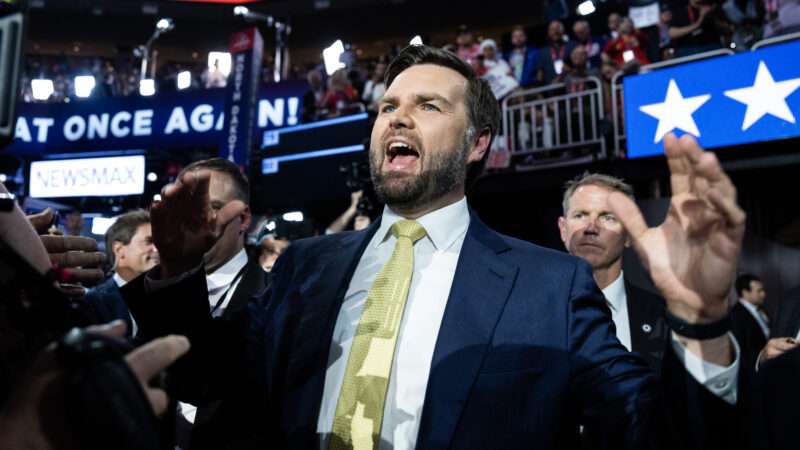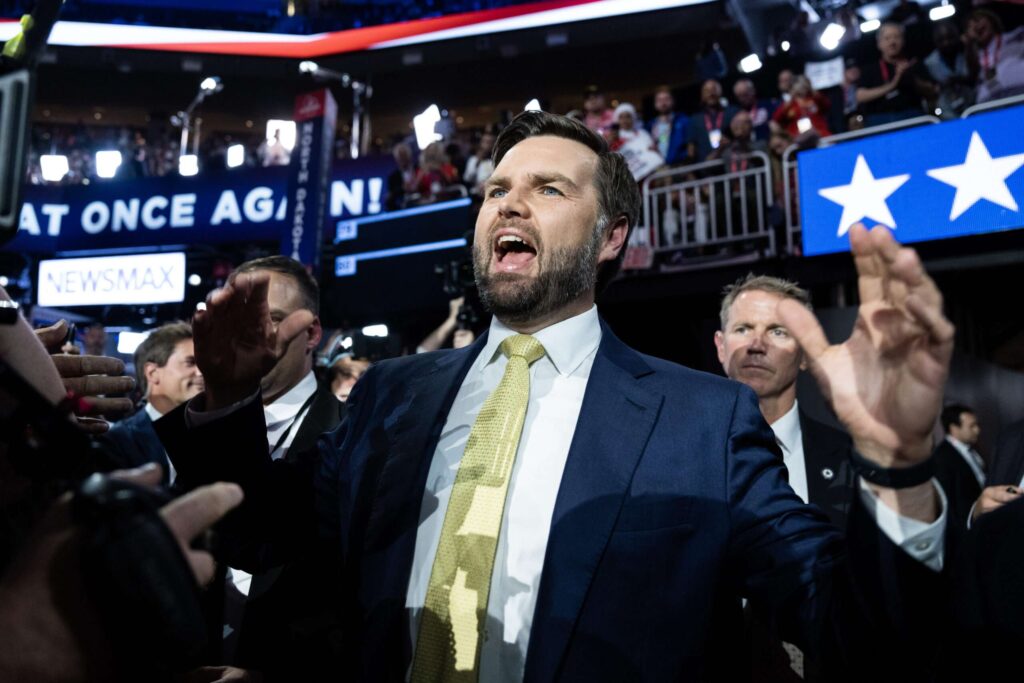
Members of the Republican New Right proclaimed themselves defenders of the working class. I’m sure they mean it, even though many of them are the best of the best. Because so many of them are lawyers—including those from Ivy League schools like vice presidential candidate J.D. Vance—we can be forgiven for not understanding that their economic policies will hurt, not help, the working class.
Part of the reason for this shift is that Republicans believe they should not continue to be the so-called party of big business. They are correct. The sad truth is that traditional Republican politicians often confuse support for free markets with propping up and protecting big banks and other corporations through subsidies and other handouts. That Democrats do the same thing does not excuse the behavior of Republicans.
The first important step in winning the title of People’s Party is to end all subsidies, bailouts, tax breaks and other government-granted privileges for big business. This would remove much of the bias against business while allowing markets to work and lift all economic boats.
I doubt the new populists will do this. Instead, expect more counterproductive “pro-worker” policies, such as higher corporate income taxes. Taxes are paid only by flesh-and-blood people, not companies.
In other words, businesses don’t really pay taxes. For example, they pass corporate income taxes on to workers in the form of lower wages, to consumers in the form of higher prices, and to shareholders in the form of lower dividends and stock valuations (which may mean the value of workers’ pensions reduce) ). It’s like a game of hot potato, except the potato is on fire and always falls in the lap of the person at the end of the line—the very people the fake populists claim to be helping.
Imagine workers’ surprise during election season when they find wages stagnating faster than politicians’ principles. “At least we’re holding it to the company!” politicians will say when workers tighten their belts again.
Calls for industrial policy suffer from the same flaws. These arguments from those on the right are often about supporting industries critical to national security and a desire to bring manufacturing jobs back to the United States, especially in areas hit hard by deindustrialization.
Even ignoring the fact that the U.S. industrial base is in good shape (capacity is at an all-time high), industrial policy inevitably involves government providing subsidies, tax credits, tariffs, and other privileges to a handful of large, well-connected companies. This kind of nepotism does nothing for most ordinary workers; it makes no sense to the politically powerful. This will hurt working class taxpayers.
Just look at President Joe Biden’s industrial policies. It is designed to ensure U.S. self-sufficiency in critical areas such as semiconductors, pharmaceuticals and advanced technology. Domestic subsidies to preferred manufacturers cost between $120 and $2.1 trillion. While governments like to claim that subsidies will ultimately benefit workers, corporations (often big, wealthy ones) are pocketing taxpayer dollars for projects they might otherwise implement. For example, about half of the Inflation Reduction Act (IRA) projects were announced before the passage of the IRA, and the private green market was thriving even before subsidies.
Clearly, in Washington, D.C., nothing says “power to the people” more than funneling taxpayer dollars to big corporations. But let’s not forget the headwind: tariffs. What better way to help ordinary Americans than by raising their cost of living?
Watch for further increases in prices of goods and services affected by tariffs. Less competition in the market results in workers paying less. Unfortunately, these price increases will hit low-income households hardest. It’s like a regressive tax, but with a populist bow on it. Then, when other countries retaliate with tariffs on U.S. products, we start playing everyone’s favorite trade war game. U.S. exporters will struggle, and productivity and economic growth will slow.
By all means, make America great again—but what does that have to do with making everything more expensive for American producers, workers, and consumers? The New Right talks a lot about being the new workers’ party, but its signature policies will bring higher prices and cronyism under the misleading banner of populism.
Copyright 2024 CREATORS.COM
The article “The pro-worker Republican Party is anti-worker” first appeared on Reason.com.

